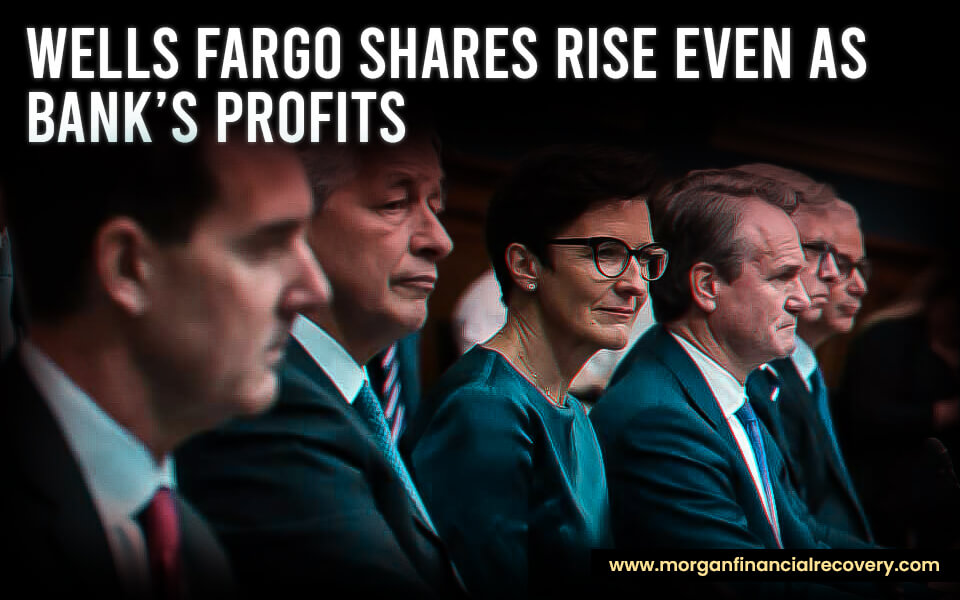
Investment scams sometimes involve guarantees of high profits, quick income, or both. So always be wary of investment options that claim to offer a high rate of return with slight to no risk because they almost surely include fraud.
In This Article
- What are Investment Scams?
- What are Common Types of Investment Scams?
- How do Investment Scams work?
- How to Identify Investment frauds?
- How to Avoid Investment Fraud?
- What to do if you’ve been the victim of an Investment Scam?
- How to Recover your Lost Funds from Investment scams?
- Why is Morgan Financial Recovery a trusted name in Investment scams Recovery?
- Why Choose Us?
What are Investment Scams?
The goal of investment scams is to defraud unwary individuals out of their money. They might appear legitimate thanks to professionally built websites, client testimonials, and marketing materials.
A Ponzi Scheme, in which funds are raised from new investors to pay out old investors, is the most well-known type of financial scam. Finally, the amount owed exceeds the amount collected, and the scheme fails, leaving all investors with nothing.
Flip cash investment is another fraud where the user is given guidance by a local store on how to insert money in a prepaid debit card. The scammer promises to flip money for the user once he/she shares the card details.
Investment fraud is much more sophisticated because of the internet and digital communications. But unfortunately, even experienced investors have fallen for some of these con games because they are so persuasive.
One thing unites all investment frauds: they all claim to be able to offer excellent rates of return with little risk.
What are Common Types of Investment Scams?
Investment scams are frequently distinguished from legitimate investments by promises of small or no-risk investments, guaranteed returns, steady income, challenging procedures, or unregistered securities.
The following list comprises the most common types of investment frauds:
Affinity fraud:
Affinity fraud begins at home. The trust and friendship within communities of people with something in common, such as religious organizations, ethnic communities, social clubs, and even professional groupings, is exploited in this form of investment fraud. Scammers work with or pose as group members, and they frequently recruit trusting group leaders to spread the word about the scam and give it credibility. The best example of affinity fraud is Instagram investment fraud.
Ponzi scheme:
An investment that doesn’t exist, is the foundation of a Ponzi scam. Returns are given to early investors using the funds of later participants until the entire scheme eventually implodes, as no new investors are attracted. As a result, the scammers behind the investment frequently make promises of exorbitant profits with little to no risk—a claim that, like most things that sound too good to be true, is untrue.
Pump-and-dump strategy:
In a pump-and-dump scheme, a stock promoter generates erroneous excitement and attracts many investors to raise a stock’s price. The stock price subsequently crashes, leaving investors who bought into the hype with a worthless investment. The promoter then sells their shares after the price reaches a particular point (and ceases pushing the stock). Potential investors typically hear about “interesting” opportunities by email or phone, or they might read about them in a forum or chat room online. They buy into the excitement, provide their money, and then lose it because they failed to study the possibilities adequately.
Binary options scam:
Binary options are essentially all-or-nothing wagers on how a currency or asset will perform over a set period. They appear straightforward. Binary scammers sometimes use alluring web advertisements, emails, and social media to entice victims, frequently displaying fictitious gains on their accounts. However, these earnings don’t exist, and as many trading platforms are located abroad, it can be exceedingly challenging to safeguard or recover a lost investment.
Forex fraud:
Trading in foreign currencies is referred to as forex, FX, or foreign exchange. Unfortunately, even with expert instruction and highly sophisticated software, forex trading is incredibly challenging. Due to this intricacy, scammers create websites pretending to offer forex trading and try to entice investors by promising them large profits with little to no risk. But instead, they are just stealing their money through forex investment scams.
Pyramid scheme:
Pyramid schemes strategically make their victims into both, the fraud’s promoters and victims. The system has a hierarchical structure akin to a pyramid, with participants recruiting new members to profit from and them bringing in additional members. As more investors join, the recruiters advance up the pyramid until people stop enrolling, ultimately exposing the scam. The plan always seems alluring with its high return promises and claims of authenticity, but most participants lose their money.
Recovery room fraud:
Recovery room scams, sometimes reload or boiler room scams, are particularly vicious since they target recent investment fraud victims. The initial scammer frequently sells the victim’s personal information to another con artist or criminal organization, who then offers the most recent victims the chance to purchase the shares that the original victims had purchased in a recent scam at a premium. However, investors are required to pay taxes or a service fee to access the funds, which is just a phony demand for more money, and the victim loses again.
How do Investment Scams work?
These con artists attempt to convince you to invest in bogus programs by luring you with instant wealth or money-doubling guarantees. In reality, though, they take your money and disappear.
When someone tries to influence your investment decision by providing incorrect information, it is certainly an investment fraud. For instance, the con artist may attempt to get you to invest directly in a firm and buy stocks, bonds, or real estate.
Recent scams that target bitcoin use online advertisements or websites to urge victims to act right now and make high-return promises. They may also employ well-known frauds like pyramid schemes.
How to Identify Investment Frauds?
High-pressure sales techniques and claims of enormous returns frequently indicate that something is unreal. The following four indicators point to a possible fraud in the form of an investment opportunity:
- Claims there is little to no risk involved in making a lot of money:
Higher-risk investments generally have more significant potential returns, whereas those with lower risks have lower potential returns. This is what’s known as the risk-return connection. For instance, there is no certainty that you will profit from investments like stocks, and you risk losing money if the stock price declines. - Someone offers you a “hot tip” or claims to be an insider:
Consider their motivation for telling you and how it may benefit them. If you follow the hot tip and it turns out to be incorrect, you could lose a lot of money. In addition, acting on what appears to be insider knowledge about a publicly traded corporation may be against the law. - You experience a sense of urgency to decide:
Scammers regularly use high-pressure techniques to obtain your money and move on to another victim. However, scammers also know that you might not fall for their tricks if you take the time to investigate anything. - The provincial securities regulator does not have the seller’s registration:
Generally, you must register with the securities authority in your province or territory before selling securities or giving financial advice.
How to Avoid Investment Fraud?
If you have a financial plan, you can assess any potential opportunities in light of it. If you consider how an investment fits your goals and risk tolerance, you’ll be more likely to make the right choice. Here are some suggestions to avoid investment scams and make your financial plan healthy.
Ask questions:
Fraudsters rely on you not doing your analysis before investing. So do your digging to fend them off. Requesting additional details or references is insufficient since con artists have no motivation to enlighten you. Instead, spend some time conducting independent research on your own.
Take a second look:
Be wary of unsolicited investment possibilities, whether from friends, acquaintances, or the internet. Get a second opinion before investing with a certified, registered advisor, an investment fraud lawyer, or an accountant.
Spend the time you require:
Be wary of time-sensitive offers and pushy salespeople. You shouldn’t have to make a direct investment if the investment isn’t credible. Instead, spend the time necessary to make a wise choice.
Understand the salesperson:
Even if you already know the particular socially, take the time to research the person enabling the investment before you invest. Always check to see if the salespeople are authorized to offer securities in your state and if they or their companies have ever encountered problems with authorities or other investors.
Ensure your online safety:
Sites for social and online marketing present a plethora of opportunities for scammers. Check out how you can “Protect Your Social Media Accounts” for advice on internet safety.
What to do if you’ve been the victim of an Investment Scam?
Your initial measures should be directed toward controlling additional losses and quickly obtaining any details you have regarding the scheme and its perpetrators. Then, file a report to Morgan Financial Recovery as soon as possible. Even if you believe the issue is minor, the sooner you report it to Morgan Financial Recovery, the simpler it will be for law enforcement to find the fraudsters and stop other people from becoming their victims. Next, consider how to fix the harm and prevent frauds in the future.
We have substantial knowledge of the sophisticated methods used by investment scams to target investors, as well as how professional misfeasance can result in people losing money, thanks to our experience assisting clients in recovering funds from investment fraud cases. With our expertise, we are well-positioned to help investors and creditors, to receive their lost money back, by holding dishonest professionals accountable.
We also offer pointers on how to avoid fraud and where to get assistance.
How to Recover your Lost Funds from Investment scams?
Investment fraud is serious business and, regrettably, occurs more often than you may assume. Investments are a surefire method to increase one’s financial stability and social standing, but what should you do if you lose all of your money because a stockbroker or financial counselor didn’t play by the rules? You can end up in a bind financially.
If you think you have been a target to a case of investment fraud, and that you might want to look for an Investment fraud attorney with experience to help you recover your lost capital, then get in touch with Morgan Financial Recovery. Even though you might feel helpless, we will assist you in getting your money back.
Why is Morgan Financial Recovery a trusted name in Investment scams Recovery?
We’ve successfully frozen bank accounts and other assets attempting to recover money for our customers even when businesses were set up using false information. To locate and recover our client’s lost resources, we use a method based on our expertise, experience, and teamwork. We collaborate with forensic experts, accountants, other professionals, and domestic and international fraud agencies.
There must be proof of some violation, such as misfeasance, misrepresentation, or unjustifiable enrichment, to directly prosecute an individual fraudster under civil law for the repayment of funds they have misappropriated. We strive to gain access to this information, with the help of our investigating and prosecuting agencies who can spot it, typically because the fraudster has a criminal conviction. Remember that the civil standard of proof, which only needs to be established based on a majority of the evidence, is less stringent than the criminal standard of proof, which must be found beyond a valid doubt.
We have acted in class actions (sometimes known as multi-party proceedings), where the same fraud has been committed against several people, representing similar patterned individuals and businesses. It implies that a person unable to recover money due to the required expenses and time may still have an option to join forces with others to file a lawsuit.
We take satisfaction in developing case-winning tactics, suited to our customers’ requirements and spending capacity. We are also experts in asset tracing and recovery. Please contact us if you need superior, reasonably priced legal counsel on investment fraud.
Why Choose us?
To get your funds back where it belongs, in your hands, Morgan Financial Recovery provides everything you require.
- We are seasoned professionals.
- We charge an all-inclusive cost.
- It’s easy to use our refund recovery services.
- We deal with fraudulent entities on your behalf.
- Millions of dollars in fraud proceeds have been recovered by Morgan Financial Recovery.
FAQs
Morgan Financial will help you recover your lost funds within 120 days after you report a scam to us. The time spent in resolving a scam case and its possibility of being triumph depends on: the evidence in support of the victim, payment channel used, and duration between the fraud’s occurrence and its reporting.
If you’ve been tricked, you must act swiftly. First, confirm to check whether you are eligible for a recovery. Then, report the scam to Morgan Financial Recovery.
Morgan Financial Recovery is a place where victims can report investment scams. Our official website is another place where you could write to us about it.
If you think that scammers may have stolen your personal information or if you lost money as a result of an investment scam, you can get in touch with us. Our professionals will treat your reports with confidentiality, engage in a transparent undertaking, and work diligently to retrieve your funds .
If you’ve been a victim of Investment scams, Morgan Financial Recovery can aid you in reclaiming your funds. Contact us to get started!


